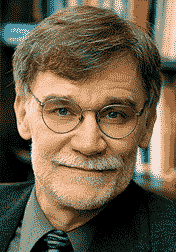
 |
||
The Yale Alumni Magazine is owned and operated by Yale Alumni Publications, Inc., a nonprofit corporation independent of Yale University. The content of the magazine and its website is the responsibility of the editors and does not necessarily reflect the views of Yale or its officers. |
Newly arrived history professor David W. Blight was so intent on teaching his first courses at Yale last fall that months passed before he found time to examine two slave memoirs he'd been given. When he did read them, he realized that the accounts—which had sat in the drawers of descendents or family friends for a century and a half—offer “rare glimpses into the story of emancipation.” Now Blight is working on a book containing the narratives. In one, John Washington tells of fleeing to the protection of Union troops in Fredericksburg, Virginia, in 1862. In the other, Wallace Turnage describes five attempts to gain his freedom from an Alabama planter; he finally succeeded in 1864. Blight wants his book to show that “emancipation was a completely transforming process, one of the most dramatic events in American history.” This June, soon after beginning the book, Blight was chosen to direct a center that supports such scholarship: Yale’s Gilder Lehrman Center for the Study of Slavery, Resistance, and Abolition. The six-year-old institute sponsors lectures and conferences, awards the prestigious Frederick Douglass Book Prize (which Blight won in 2001), and hosts researchers. Blight succeeds Sterling Professor of History David Brion Davis. Through the center’s outreach to teachers, and by aiming his emancipation book at “the intelligent general reader,” Blight hopes to engage the public in examining “how cultures construct public memory.” He says historical memory is not created solely by academics. In movies, at museums, and through political rhetoric, Blight says, “public memory is being forged out there every day.” Robert Blocker will serve a third five-year term as dean of the School of Music. Since he was first appointed in 1995, Blocker has enlarged the school’s endowment and improved its facilities. A renovation of Sprague Hall was completed last year, and both Hendrie Hall and Abby and Mitch Leigh Hall are slated for renovation. Blocker, who was dean of the School of Arts and Architecture at UCLA before coming to Yale, is a concert pianist. Shinik Hahm, conductor of the undergraduate Yale Symphony Orchestra since 1995, has been named music director of the Philharmonia Orchestra of Yale at the School of Music. Hahm, a native of Korea who studied at Rice and Eastman, is on the conducting faculty at the School of Music. In addition to his duties at Yale, he is currently the music director and conductor of the Tuscaloosa Symphony Orchestra and the Daejeon (South Korea) Philharmonic. Anthony Kronman '72PhD, '75JD, is trading in one lofty title—dean of the Law School—for another: Sterling Professor of Law. Kronman, who stepped down as dean in June after ten years, was awarded Yale’s highest faculty honor for his work as a legal theorist, a philosopher, and a critic of the legal profession. No more than 27 faculty members can hold the title Sterling Professor; they are appointed by the president of the university.
Stepping down Jeffrey Garten will step down as dean of the School of Management when his second five-year term ends in the spring. Garten, a prolific writer and commentator on business matters, has presided over an expansion of the school’s programs and an increase in its visibility and reputation. “Today, the SOM community is vital and vigorous, the faculty is strong and productive, and the alumni are engaged and supportive,” said President Levin in praising Garten’s work.
Remembered Edward Slocum Crelin Jr. '51PhD, a professor of anatomy at the School of Medicine for 40 years, died on June 21 in Branford, Connecticut. He was 81 years old. A native of Red Bank, New Jersey, Crelin joined the Yale faculty in 1951 upon receiving his PhD. An expert in the anatomy of newborn children, he was the author of Anatomy of the Newborn (1969), the first atlas of human infant anatomy ever written. He was also interested in the origins of speech; in 1987 he published The Human Vocal Tract, in which he used anatomical studies of early humans to determine if they were capable of speech. |
|
|
|
|
|
|
|
|
©1992–2012, Yale Alumni Publications, Inc. All rights reserved. Yale Alumni Magazine, P.O. Box 1905, New Haven, CT 06509-1905, USA. yam@yale.edu |
||
